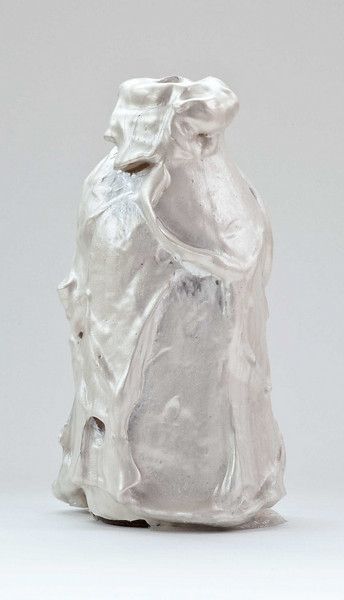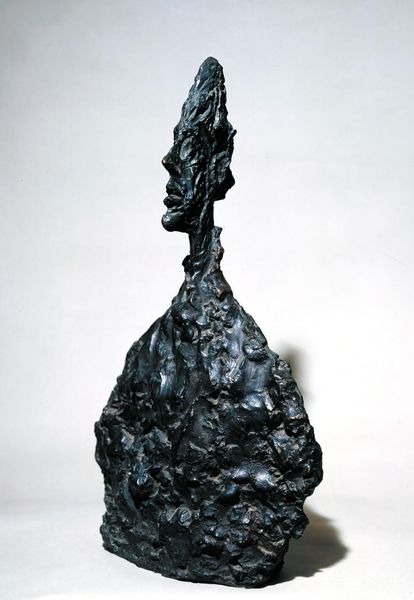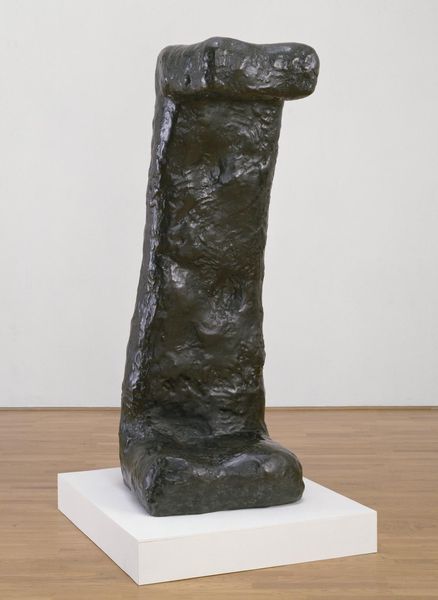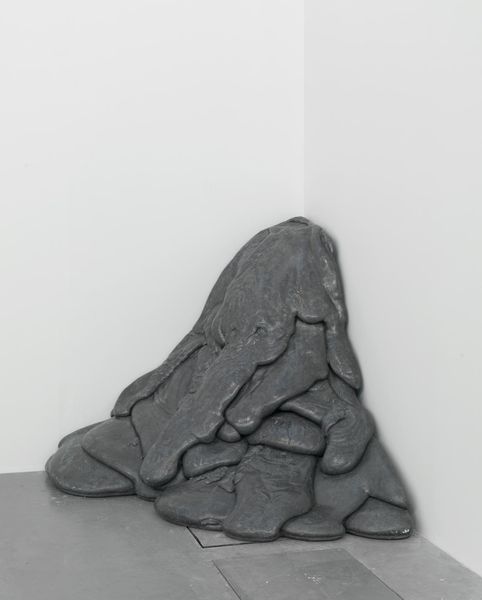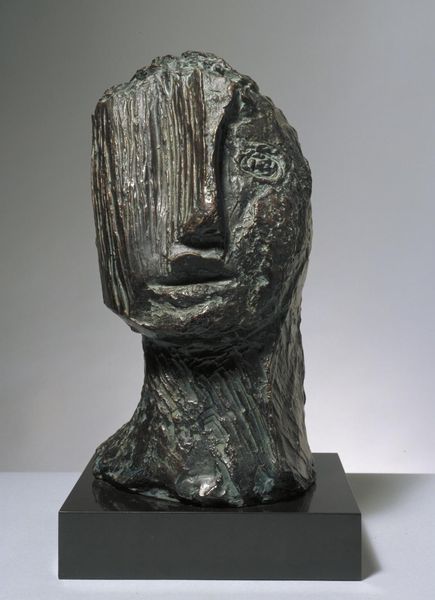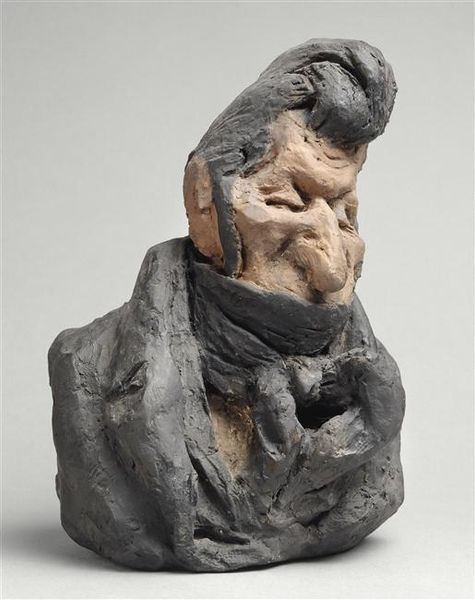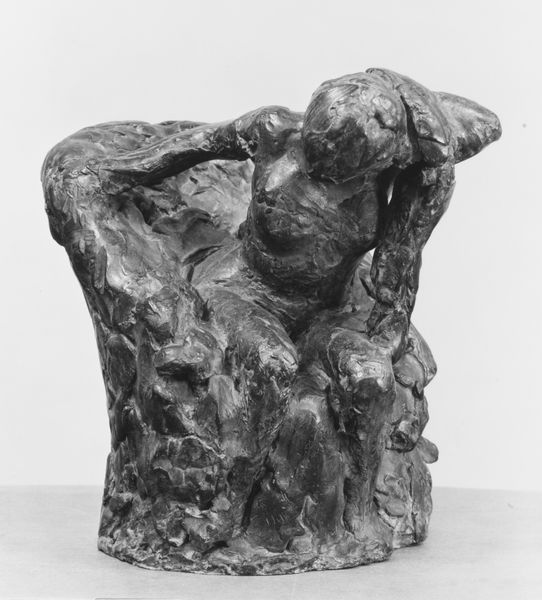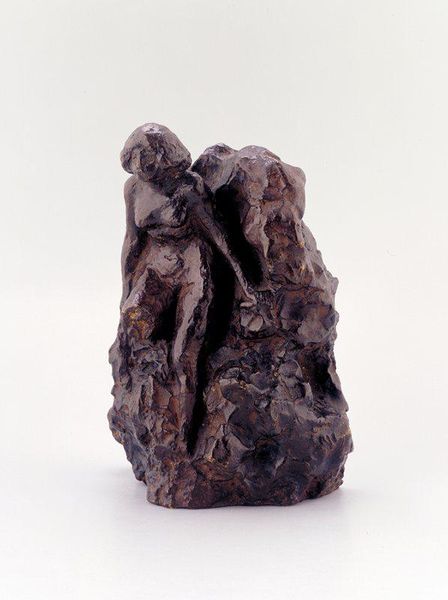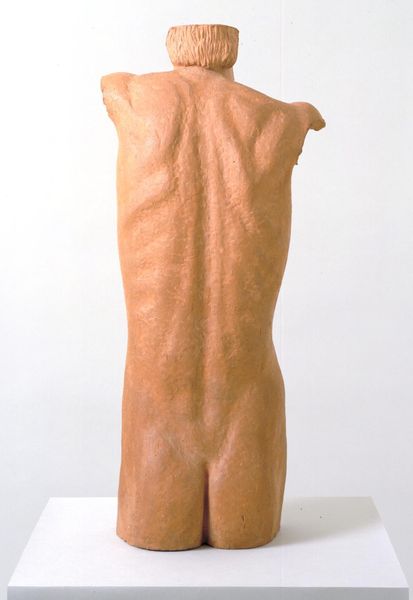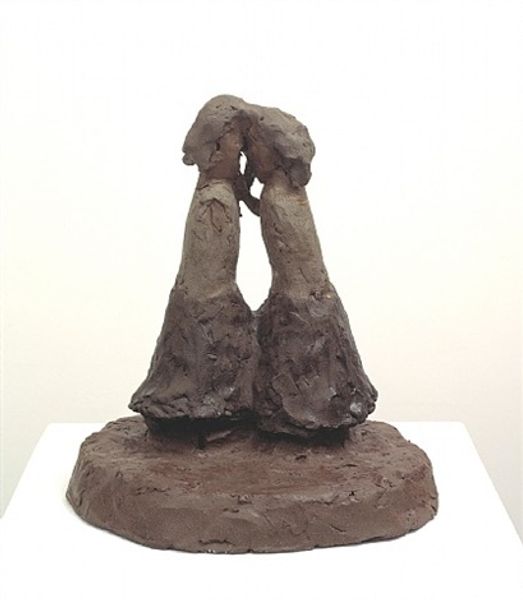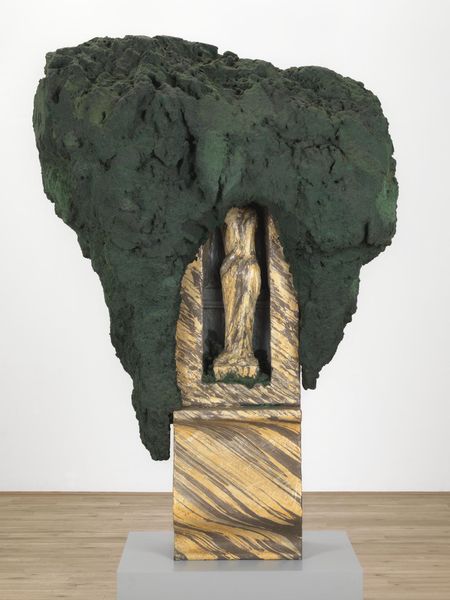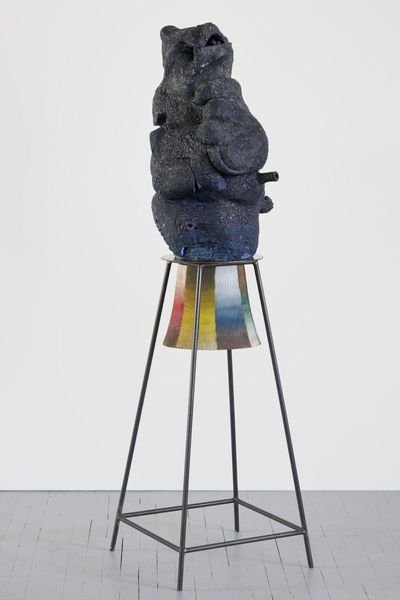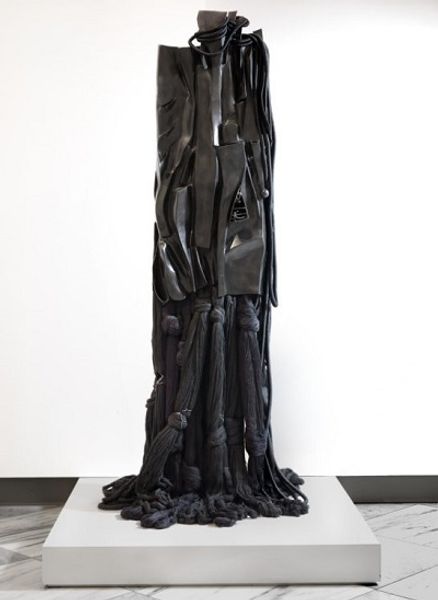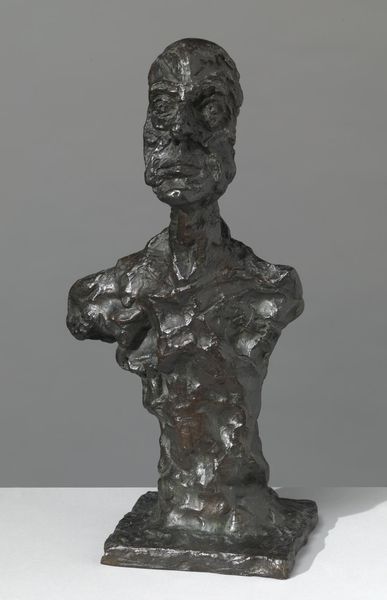
Dimensions: object: 540 x 295 x 310 mm, 25.2 kg
Copyright: © ADAGP, Paris and DACS, London 2014 | CC-BY-NC-ND 4.0 DEED, Photo: Tate
Curator: Welcome. Here we have Jean Fautrier's "Head of a Hostage" residing in the Tate Collection. Editor: It looks like a rough-hewn boulder pretending to be a head. Claustrophobic. Like a scream trapped in stone. Curator: Fautrier lived through both World Wars. This sculpture relates directly to the Nazi occupation of France, representing the anguish of those persecuted. Editor: So, the 'hostage' is more than an individual. It's an entire population, crushed and silenced. The texture... it's like dried mud, the earth itself bearing witness. Curator: Precisely. Fautrier was deeply affected by the executions he witnessed and translated that trauma into his art. Editor: It's brutal, but honest. A monument to unspeakable pain. I almost want to touch it. Curator: It's a difficult piece, demanding that we confront uncomfortable truths. Editor: And it lingers. A reminder that art can be a scream, a prayer, a testament. I can't shake the feeling I get from it.
Comments
tate 10 months ago
⋮
http://www.tate.org.uk/art/artworks/fautrier-head-of-a-hostage-t07300
Join the conversation
Join millions of artists and users on Artera today and experience the ultimate creative platform.
tate 10 months ago
⋮
This work belongs to a series of paintings and sculptures, known collectively as the ‘Hostages’, made in 1943–5. Fautrier spent most of this period in a sanatorium on the outskirts of Paris. At night, he could hear the Gestapo torture and execute prisoners in the nearby woods. The pitted and scarred surface of Head of a Hostage suggests both individual features and the anonymity of bodies found in mass graves. Versions of the piece exist in bronze, but this cast is made from lead, carrying with it connotations of weight, toxicity and mortality. Gallery label, July 2012
